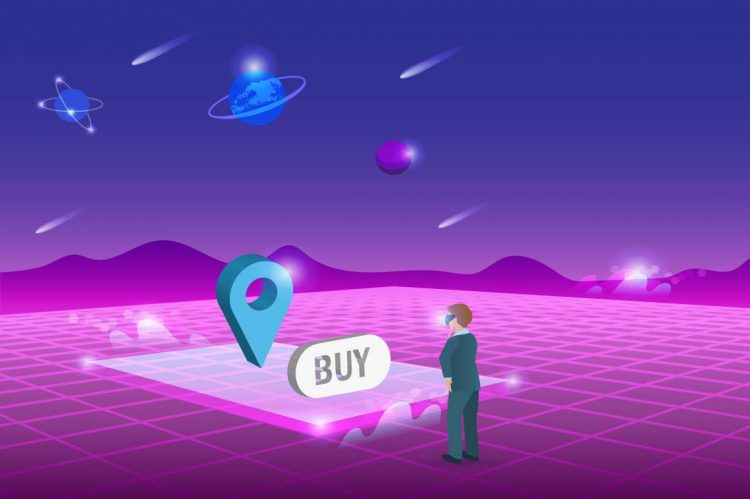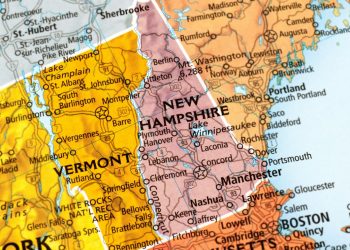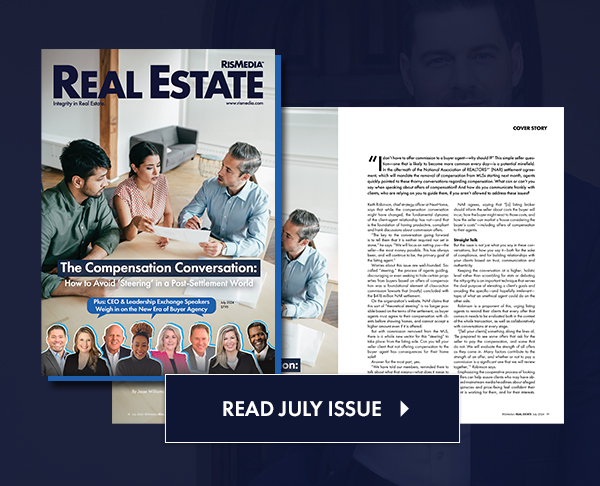The term “Metaverse” is buzzing across the internet and leading to more conversations around its function and social implications.
For virtual reality (VR) enthusiasts, the Metaverse is an expanded cyber universe where one can strap on a headset and escape into an immersive gamescape. With virtual reality-related injuries on the rise, it is only plausible to believe padded Metaverse rooms installed in people’s homes might just become the new mancave or sheshed.
For marketers and advertisers, it is another digital marketing platform to promote sponsored content, goods and services. An example of this, Gucci teamed up with Roblox to create an interactive art installation called, “The Gucci Gardens” and Vans opened up a skate-park in the Metaverse called “Vans World.”
For brokerages and agents, the Metaverse may be another high-risk, high-reward enterprise worth considering. If the virtual realm represents westward expansion—the Metaverse is the gold rush. With record-low inventory causing problems in the real world, the virtual world, on the other hand, has plenty of land for the taking.
One agent taking advantage of these cyber properties is Rochelle Atlas Maize—director of luxury estates at Nourmand & Associates in Beverly Hills.
Rochelle recently announced a partnership with Metaverse developer LEDY for the sale of a (real) $9.4 million Beverly Hills estate. In this one-of-a-kind deal, whoever buys the 607 N. Arden Drive home will have the option to purchase a virtual sister residence built into the Metaverse in Decentraland for $100,000.
“I’m always at the forefront of trends and brainstorming my next big marketing campaign for my listings,” Maize says. “I always see “the next big thing” and saw the potential with this partnership. When LEDY approached me about representing their new 55 Metaverse Resort listings, it piqued my interest and after a few discussions, I was sold! I see the potential in the Metaverse and their Extraverse Resorts and hope this is the beginning of a historical collaboration.”
About the fungible and non-fungible property
The elegance and sophistication of this 1928 estate is astounding in and of itself.
Its signature Spanish-style is quintessential of a nostalgic Beverly Hills estate—complete with stucco and terracotta roof tiles set in the backdrop of the Beverly Hills Hotel and Rodeo Drive.
The home boasts 5,082 square feet with 5 bedrooms and 5 bathrooms, as well as an outdoor terrace and pool and a detached 1 bed/1 bath guest house and gym.
So, what about this “metahouse?”
In contrast to the real life architecture, the metahouse in Decentraland sits on four parcels of land and displays an 8-bedroom, Georgian mansion—which the prospective buyer of 607 N. Arden is not obliged to purchase alongside the physical property.
Metaverse homes are displayed as 3D-pixels, but they are more than just images. You can interact in the space, change the décor, host friends from all over the world and countless other virtual activities. Just like in real-life, metaverse properties can be developed, flipped or leased.
Metaverse virtual worlds are generally subdivided into a limited number of plots or parcels. Ownership of each plot is generally recorded in a non-fungible token (NFT) that is coded onto a public blockchain or cryptowallet. Essentially, these NFTs are equivalent to a deed in the real world.
This rare listing has multiple offers (currently $1M over asking price), with two of those offers interested in the physical and metaverse property bundle.
What’s the ‘cache’?
Digital real estate is likely to become an increasingly exciting and useful asset—and with professionals like Maize taking actionable steps towards a virtual footprint, her resources deserve to be shared.
But, we know how confusing the concept can be.
Maize details more about the process with us, such as what brokerages should know before investing their time and resources into the Metaverse.
“The Metaverse is very niche and agents interested in learning more about it need to dedicate some time to the learning curve,” she says. “Open-minded brokerages will embrace this idea, however, they must know it cannot be integrated into traditional escrows.”
Fortunate buyers will expect to have two separate transactions—dichotomized into real world currency versus Metaverse tokens.
“The physical home (607 N. Arden Drive) in Beverly Hills is purchased the traditional way we are all familiar with, and the virtual metahouse is purchased digitally through the blockchain; they are two separate transactions,” Maize explains. “When making purchases in the Metaverse, you will utilize your Digital Crypto Wallet. The purchases are all completed through the Blockchain, which is an Ethereum-based crypto token used to purchase and sell virtual assets. The buyer of the physical home has the first right to purchase the virtual metahouse. However, if that buyer doesn’t want it, it will go to the open market. If multiple people are interested, the virtual house could start a bidding war that can go over the current asking price of $100,000.”
Like tangible assets of a property you can glean from curb appeal or an open house, target buyers for these dual properties, as Maize highlights, see an opportunity in the intangibles of the Metaverse. “My target buyer is someone who is crypto and tech-savvy and interested in the potential of NFTs.”
Attracting these kinds of buyers, according to Maize, requires a comprehensive, digital marketing strategy. “I’m heavily investing my marketing tactics on digital platforms, including Instagram and TikTok, for this listing in hopes it will bring in the right buyer. We’ve already received outstanding press throughout the world.”
Investing in the creator economy takes a patient approach, as well as practice. Maize safeguards any legal obstacles, while explaining that these kinds of properties do require a very open-minded audience.
“The only hang up is that there is a learning curve,” she says. “Since this is so cutting-edge, the majority of buyers don’t quite understand this yet. Like any new venture, it takes time for the mainstream audience to understand its potential and we’re hoping this marketing campaign attracts the right buyer.”
Among acquisition perks, Maize shares that this Metaverse collaboration has given her listings a leg up in an in-demand market. “Through my partnership with LEDY, I’ve been able to tap them for more information since they are more in tune with the Metaverse space. I think the Metaverse collaboration is only boosting the listing’s visibility.”
Ultimately, the propositions for buying and selling into the Metaverse are endless—as is its potential for it to succeed.
“When you own a property in the Metaverse, you gain access to trading and selling the home, sometimes for more than you purchased it for,” Maize says. “You’re also given access to exclusive NFT events, deals and opportunities. If you want to take it a step further, you can use the space to expand your business into the Metaverse space. You can tap into the limitless potential of technology.”













Metaverse can change real estate industry to virtually ways. because in metaverse we dont need go outside to the office to check House Or Apartment . we can Connect People Virtually